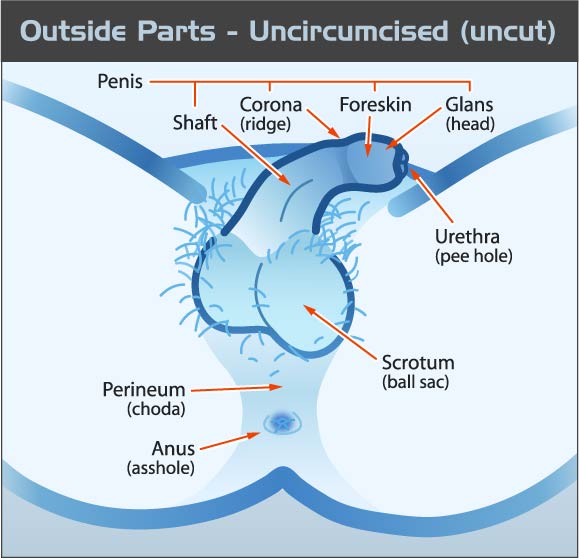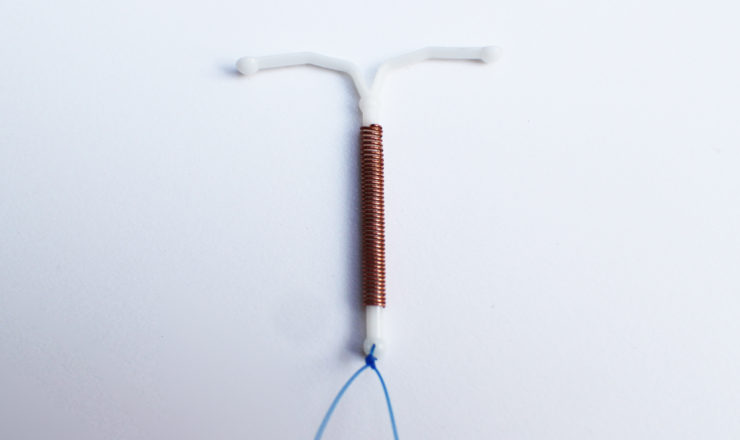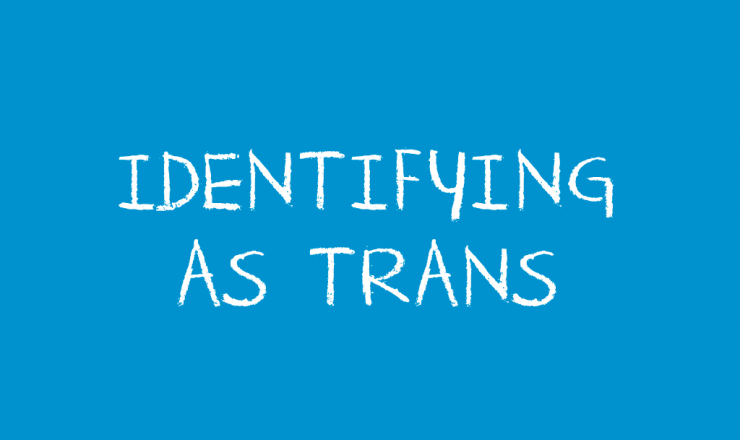Penises
Here are some tips on taking care of and enjoying your parts if you have a penis* and testicles* (balls, testes).
Not everyone experiences or relates to their penis and testicles in the same way or uses the words used on this website for their bodies. We support you using the language that feels best for you.
Know your parts
Penis
- Your penis consists of the glans (the head), the corona (the ridge between the head and the shaft) and the shaft (the long part of the penis). The urethra is the opening at the tip of the head.
- Foreskin covers the head of the penis, unless it has been removed through circumcision.
- This is the part of your body that gets hard during an erection, usually when you are aroused.
Testicles (balls)
- You have two testicles inside the scrotum (ball sac).
- When your body is warm the scrotum relaxes and your testicles hang low. When your body is cold or you are scared, the scrotum retracts, bringing your testicles closer to your body for warmth or protection.
What are your penis and testicles for?
Your penis:
- contains the urethra which carries urine (pee) from your bladder to the outside of your body.
- carries pre-cum and semen (cum) through your urethra to the outside of your body.
- can bring pleasure to you and your partner(s) during masturbation and sexual activity.
Your testicles:
- produce sperm that mixes with other fluid to become semen which comes out of the penis during ejaculation (cumming).
- produce testosterone (a sex hormone).
- are very sensitive to being squished.
- can bring pleasure to you during masturbation and sexual activity.
What do penises and testicles look like?
- Penises and testicles come in many shapes, sizes and colours.
- The average penis length for an adult is 3-4 inches when soft (not erect) and 5-6 inches when hard (erect). The size of a penis when it’s soft is not related to how big it will be when it’s hard.
- The average penis width is 1.4 – 1.6 inches and the average girth (all the way around) is 4.5 – 5.1 inches.
- Some penises are lighter in colour, some are darker – the colour of your penis is usually a bit darker than your overall skin colour. The head of the penis may also be a different colour from the shaft.
- Some penises are circumcised (cut), some are not (uncut). If someone is circumcised, it means the foreskin, which covers the head of the penis, has been removed.
- Circumcision is often done soon after a baby is born, for religious, cultural or personal reasons. Sometimes, later in life, penises are circumcised for medical reasons, although this is not common.
- An uncircumcised penis may look different from one that has been circumcised, but the differences are less noticeable when the penis is hard. That’s because the foreskin usually pulls back to expose the head of the penis during an erection.
- It is normal and healthy to be either uncircumcised or circumcised.
- Balls can be wrinkly or not, hairy or not, and one ball will often hang lower than the other.
- Lots of people feel self-conscious about their penis and testicles. Remember, penises and testicles vary in size, colour etc. Get to know your penis and testicles so you know what’s normal for you.
- No matter what size your penis or balls are or whether you are cut or uncut, you will be able to enjoy sex and be a good sexual partner. Sex is about how you interact with your partner(s), not the size or look of your body parts.
- Creams, pills, exercises, or other devices cannot change the size of your penis.
- One of the best ways to love your body is to be comfortable with it. If you are unhappy with the appearance of your penis and balls, try to change the way you think about your body instead of changing the way your body looks. Look for partner(s) who make you feel good about your body, not worse.
What comes out of your penis?
- There are three fluids that come out of your penis: pre-cum, semen (cum or ejaculate), and urine.
Pre-ejaculate/Pre-cum
- Pre-cum is the fluid that comes out of the tip of your penis when you are aroused. Pre-cum may only be a few drops of fluid or it may be a lot more.
- The purpose of pre-cum is to clean and lubricate the urethra before semen travels down during ejaculation.
- Pre-cum on its own does not contain sperm. However, it may pick up sperm leftover from a previous ejaculation on the way out of the urethra. Although this is uncommon, it can pick up enough sperm to get your partner(s) pregnant.
Semen/cum (jizz, juice, cream, load, spooge, spunk, etc.)
- Semen is a whitish (or yellowish), sticky fluid that contains sperm (the cells that can fertilize an egg and get someone pregnant), as well as fluids from the prostate and seminal vesicle.
- Everyone’s ejaculate (cum) has its own look, taste and smell; get to know yours!
- Semen comes out of your penis when you ejaculate. During ejaculation, the muscles in your penis push semen out through the urethra at the tip of your penis.
- Ejaculation usually happens when you have an orgasm, but not always. You may have an orgasm and ejaculate during sexual activity or when you are asleep.
- When you ejaculate while asleep, it’s called a wet dream. This may be accompanied by sexually charged dreams. Wet dreams are really common and may happen less often as a person ages.
- You may find that you ejaculate sooner than you would like. This is sometimes called “premature ejaculation”. It is very common and can happen at any age. This is just your body’s response to being turned on.
- If you find that the timing of your ejaculation is interfering with your pleasure or the pleasure of your partner(s), you may want to learn how to gain more control over when you ejaculate by using the start and stop method:
- When you are turned on (aroused) and feel like ejaculating, stop masturbating and try not to cum.
- Once you have held back for a few minutes, continue masturbating and holding back again.
- Repeating this cycle may allow you to become more familiar with your body, and its responses, as well as develop techniques to hold off ejaculating.
Urine (pee)
- Urine comes from your bladder, travels up the urethra and comes out the opening at the tip of the penis.
- If something other than pre-cum, semen or urine comes out of the tip of your penis, talk to your clinican.
Erections
- Erections (hard-ons, boners, wood) happen when the penis fills with blood and becomes stiff or hard.
- During an erection, your penis may be curved up or down or stick straight out.
- Erections can happen at any time. They can happen when you are turned on, or when you are not turned on.
- Erections that are involuntary, random and/or unwanted are called spontaneous erections. These may be frustrating or embarrassing, but remember that this is completely normal.
- An erection does not always mean that you want to have sex, or that you are turned on.
Losing an erection
- Sometimes you may be unable to get, or keep, an erection.
- This is very common and rarely means there is something medically wrong. Many things can affect your ability to get or keep an erection including stress, being really tired, feeling down, being drunk or high or not feeling connected to your partner.
- Sometimes a person might lose an erection once, and this may cause worry, which in turn may cause difficulties the next time because of that worry. This can be a frustrating cycle.
| Useful Tips |
|
- It is possible that recurring difficulties getting an erection can be due to medical reasons, including injury, certain health conditions or the impact of some medications. Talk to your clinician if you are worried about the timing/frequency of your erections.
- Remember, losing an erection is a common occurrence; you’re not alone!
Taking care of your penis and testicles
Penile Health
- You do not need any special soaps or cleaners to wash your penis and testicles. Washing with warm water, and plain soap if you prefer, is enough to avoid the buildup of smegma. Smegma is a white substance produced by the glands in the penis that, if not washed away, can build up and cause an odour.
- If you have sensitive skin, avoid soaps that are fragranced.
- If you have a foreskin, it is a good idea to clean the foreskin. Gently pull your foreskin back and wash the area with warm water. Do not force your foreskin back if it hurts.
- You do not need to clean your penis after sex unless you want to, whether you have a foreskin or not.
Grooming
Some people like to groom their pubic hair, and others prefer to let it grow. This is a personal decision, and has no impact on sexual health. If you decide to groom here are some things to keep in mind:
- There are different ways to remove hair including: scissors, clippers, shaving, waxing, depilatories (chemicals that break down the hair), electrolysis and laser hair removal.
- For methods that do allow hair to grow back, it will not grow back longer or thicker than before.
- More and more people are going to a professional for hair removal. If you are visiting a professional, ask about their equipment-cleaning practices.
Getting to know your testicles/balls
- From the time you are 15 years old, it can be helpful to be aware of how your testicles usually look and feel.
- The best time to feel your testicles is while you’re in a bath or shower when the muscles in the scrotum are relaxed. This makes it easier to roll each ball between your thumb and forefingers, so you can get used to how your testicles feel.
- If you notice any lumps, pain, a feeling of heaviness or dragging in the lower abdomen (belly) or scrotum, or a dull ache in the lower belly or groin, see a clinician. Although testicular cancer is not that common, reporting any changes to a clinician can help detect any possible problems at an early stage.
Pleasure zones
- Your penis can be a great source of sexual pleasure, as can having your testicles played with. There are, however, many other pleasure zones on the body.
- Sometimes called the “male g-spot”, your prostate is a gland that is the size of a walnut that is just inside your anus (butt). Some people like their prostrate gland touched or stimulated – this can be done through the butt. Anyone with a prostate can enjoy prostate stimulation, regardless of your sexual orientation.
- The perineum (choda), the area of skin between your anus and your testicles, is filled with lots of nerve endings. Some people find having their perineum touched very stimulating.
- Lots of people like to stimulate or be stimulated in other areas. Some of these “hot spots” can include ears, neck, nipples, armpits, thighs, butt, and feet to name a few – have fun and explore!
Self-pleasure/masturbation
- Masturbation is stimulating your genitals or other parts of your body in a way that makes you feel good sexually. You can masturbate alone or with someone else.
- People may use their hand(s), objects or sex toys to pleasure themselves, while others use their imagination, porn or erotica.
- Many people masturbate, including people of all genders, abilities, sexualities, ethnicities, cultures, religions, and ages, as well as people who are single or in relationships.
- Masturbation is healthy and normal. It’s a great way to learn about your body and find out what feels good for you. It can also relieve stress, and there is no risk of STIs or pregnancy.
- Masturbating cannot hurt you or physically change your body. You cannot get sick, go blind, grow extra hair, or change the size of your penis from masturbating.
- You can masturbate as much as you like as long as you are still enjoying other activities in your life too.
- Some people masturbate several times a day, some a few times a week, and others every once in a while.
- Everyone is different and it’s important to find out what feels right for you.
- Choosing not to masturbate is okay too.
For a downloadable resource on this topic, please visit Planned Parenthood Toronto Factsheet Database.
If you have questions about this topic, feel free to contact one of our peer educators. [Link]
*We know that these aren’t the words everyone uses for their bodies (eg. trans folks), and support you using the language that feels best for you.
Last Edited: October 2020







